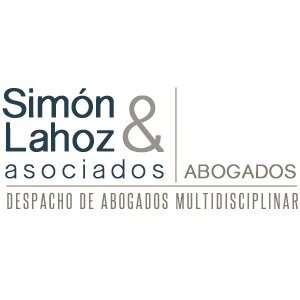Best Education Law Lawyers in Zaragoza
Share your needs with us, get contacted by law firms.
Free. Takes 2 min.
List of the best lawyers in Zaragoza, Spain
About Education Law in Zaragoza, Spain
Education Law in Zaragoza, Spain, encompasses a wide range of legal issues related to schools, universities, students, teachers, and education policies. It is influenced by both national policies set by the Spanish government and regional regulations specific to the autonomous community of Aragón, where Zaragoza is located. Matters such as the right to education, special education needs, school administration, teachers' rights, and student discipline fall under this legal field. Understanding the specific applications of these laws within Zaragoza is crucial for ensuring that educational practices comply with regional standards and regulations.
Why You May Need a Lawyer
There are several situations where individuals or institutions might require legal assistance in the field of Education Law in Zaragoza. Common scenarios include disputes over student rights, the handling of disciplinary actions, issues related to special education services, and the enforcement of educational equality. Additionally, teachers or educational institutions may seek legal guidance concerning employment contracts, allegations of misconduct, or compliance with educational regulations. Parents might also need a lawyer to navigate disputes over school placements or ensure their children receive appropriate accommodations for special needs.
Local Laws Overview
Zaragoza's education system is governed by a combination of national laws and regional decrees from the Aragón government. Key areas include:
- Compulsory Education: Education is mandatory for children from ages 6 to 16, in line with national legislation.
- Special Education Needs: Schools must provide necessary support services and accommodations for students with disabilities, as stipulated by both national and regional laws.
- Enrollments and Transfers: The regional Ministry of Education regulates student admissions and school transfers, ensuring equitable access to education.
- Curriculum and Quality Control: Curriculum content is guided by national standards, with regional authority input to ensure quality education across state schools.
- Rights and Responsibilities: Both students and teachers are protected under laws outlining educational rights and responsibilities, prohibiting discrimination, and safeguarding teacher employment rights.
Frequently Asked Questions
What is the age range for compulsory education in Zaragoza?
Compulsory education in Zaragoza, as in the rest of Spain, covers children aged 6 to 16 years old.
How can parents apply for special education services for their child?
Parents need to contact their child's school to initiate the assessment process. If necessary, they can seek further assistance from the regional education authorities.
Can parents choose any school for their child's education?
While parents have a choice, the availability depends on factors like catchment area, school capacity, and specific program requirements.
What are the legal rights of students facing expulsion?
Students have the right to due process, including receiving a notice of charges, an opportunity to present their case, and a final decision based on evidence.
Are there specific laws against bullying in Zaragoza schools?
Yes, regional regulations mandate schools to have anti-bullying policies and procedures in place to address and prevent bullying.
How are private and charter schools regulated?
Private and charter schools must meet the educational standards set by the Ministry of Education. They are subject to both national and regional oversight.
What is required for a teacher to obtain certification in Zaragoza?
Teachers typically need a degree in education and must pass relevant exams and complete qualifying teaching practices, as stipulated by the Ministry of Education.
Do public schools have to provide religious education?
Public schools offer optional religious education classes, commonly focused on Catholicism, but parents can opt their children out if they wish.
How are school closures or mergers decided?
Decisions regarding school closures or mergers are made by regional education authorities, often based on student numbers, facilities, and broader educational needs.
What should parents do if they disagree with a school decision?
Parents can first seek a meeting with school administrative officials and, if unresolved, they can appeal to higher authorities within the regional education department.
Additional Resources
For those seeking more information or assistance on Education Law in Zaragoza, the following resources can be helpful:
- Aragón Regional Ministry of Education - Offers guidance and resources for parents and educators.
- National Ministry of Education and Vocational Training - Provides national legal frameworks and educational policies.
- Educational Advocacy Services - Organizations that offer legal support and advice for educational issues.
- Local Law Firms Specializing in Education Law - For personalized legal representation and advice.
Next Steps
If you need legal assistance in Education Law in Zaragoza, consider taking the following steps:
- Identify the Issue: Clearly define the legal issue or question you are facing within the education context.
- Consult Education Authorities: Before pursuing legal action, consult with school or regional education authorities to resolve disputes amicably.
- Seek Legal Advice: Contact a law firm or legal clinic in Zaragoza specializing in Education Law for guidance and representation.
- Gather Documentation: Collect all relevant documents, correspondence, and evidence related to your case to support your legal consultation.
Following these steps will help you navigate the legal processes and seek the appropriate resolutions to your educational concerns.
Lawzana helps you find the best lawyers and law firms in Zaragoza through a curated and pre-screened list of qualified legal professionals. Our platform offers rankings and detailed profiles of attorneys and law firms, allowing you to compare based on practice areas, including Education Law, experience, and client feedback.
Each profile includes a description of the firm's areas of practice, client reviews, team members and partners, year of establishment, spoken languages, office locations, contact information, social media presence, and any published articles or resources. Most firms on our platform speak English and are experienced in both local and international legal matters.
Get a quote from top-rated law firms in Zaragoza, Spain — quickly, securely, and without unnecessary hassle.
Disclaimer:
The information provided on this page is for general informational purposes only and does not constitute legal advice. While we strive to ensure the accuracy and relevance of the content, legal information may change over time, and interpretations of the law can vary. You should always consult with a qualified legal professional for advice specific to your situation.
We disclaim all liability for actions taken or not taken based on the content of this page. If you believe any information is incorrect or outdated, please contact us, and we will review and update it where appropriate.












